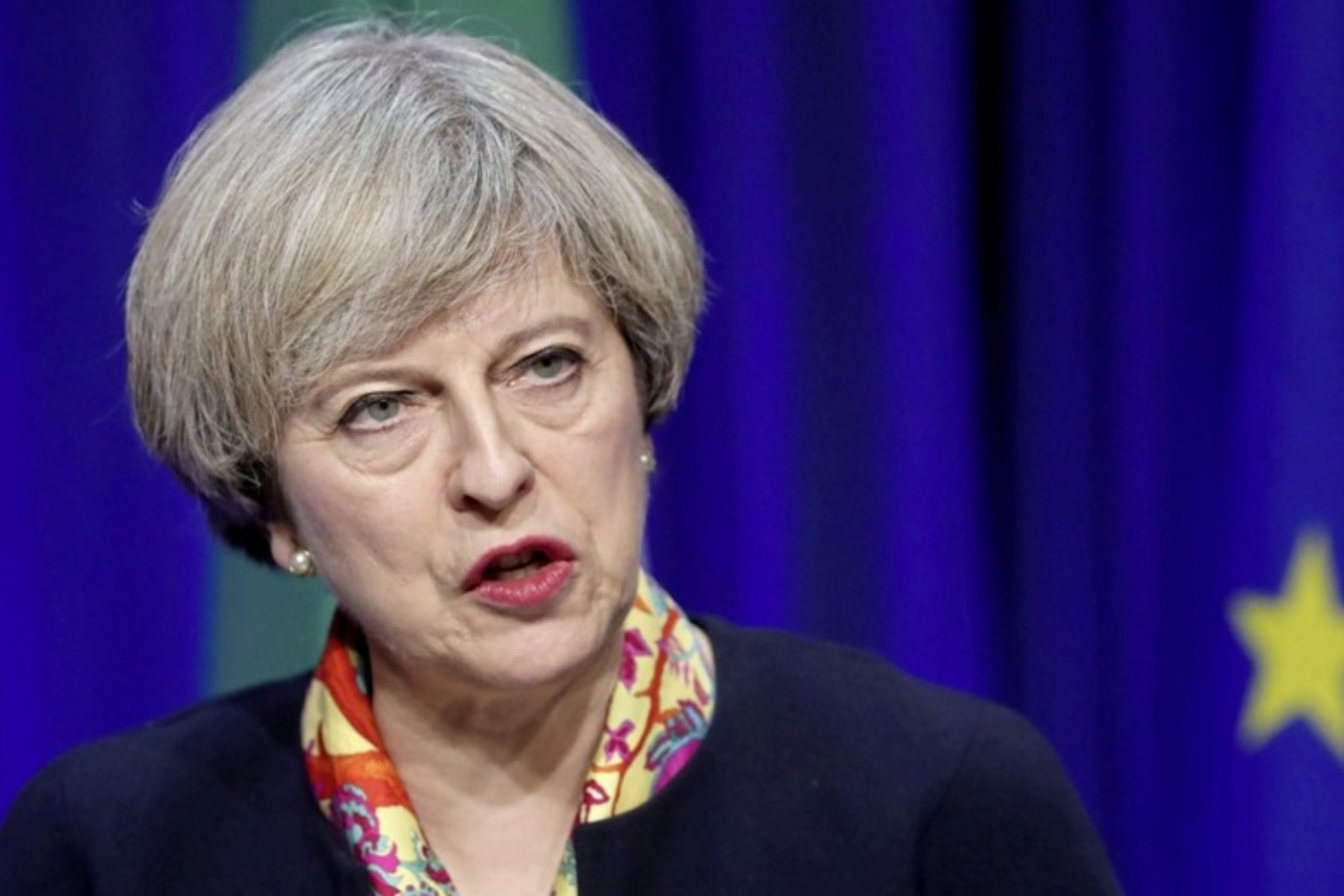
PM defends Syria airstrike after six hour debate in Parliament
Theresa May, facing a rowdy session of parliament on Monday, defended her decision to join U.S.-led missile strikes against Syria without first seeking parliament's authorisation.
May justified her action in bypassing a parliament vote on military action, saying she was driven by the need to decide quickly about joining the United States and France in Saturday's strikes, made in retaliation for a suspected poison gas attack.
Saying she had no doubt the "Syrian regime" was behind the April 7 gas attack which she called a "stain on humanity", May told lawmakers she had acted in the national interest. She refused to be drawn on whether she would seek their approval for future action.
Jeremy Corbyn, head of the opposition Labour party, led criticism of May for not recalling parliament a vote, accusing her of blindly following U.S. President Donald Trump's orders.
"I'm absolutely clear that it is parliament's responsibility to hold me to account for such decisions and parliament will do so," May told the House of Commons in a rowdy session.
"But it is my responsibility as prime minister to make these decisions and I will make them."
May has weathered months of doubt over her leadership due to rows over the Brexit decision to leave the European Union and an ill-judged decision to call an early election when her Conservative Party lost its parliamentary majority.
Now, she is enjoying an unusual spell of international support for her action in Syria and her stance against Moscow over a nerve agent attack on a former Russian spy in Britain.
But she still has to tread carefully in parliament, where she now relies on a small Northern Irish party to get enough votes to pass legislation, and has tried to appease lawmakers, angry over being sidelined, by offering time to discuss Syria.
Ian Blackford, the leader of the opposition Scottish National Party in Westminster, was another of her critics who asked May why she had broken with a convention dating back to the 2003 invasion of Iraq and not recalled parliament for a vote.
"The prime minister leads a minority government," he said. "It was perfectly possible for the house to have been recalled in advance. Why was this not done?"
PRAISE
While some in May's Conservative party also expressed their regret that she had sidelined parliament, May won praise from others - one calling her a "real prime minister" - for moving swiftly to support the joint air strikes.
Corbyn drew jeers and shouts for his taunt that May had acted to please Trump.
"We have not done this because President Trump asked us to, we have done it because we believed it was the right thing to do, and we are not alone," May said to cheers.
But she avoided answering questions on her future strategy for Syria, on whether parliament would be consulted on any further strikes and ignored demands by Corbyn for a War Powers Act to limit the government's power to launch military action.
That prompted calls for future debates on Syria.
Corbyn won approval for a debate on parliament's rights in regard to British military action on Tuesday, and parliament debated long into the evening on Monday on the government's strategy in Syria, particularly regarding civilians there.
Britain has said there are no plans for future strikes against Syria. May has emphasised that the strikes were "limited" to only target Damascus's chemical weapons programme.
But she will be mindful of how military action can backfire.
Former Prime Minister Tony Blair's legacy was tainted by his decision to join the war against Iraq, especially after an inquiry concluded that the decision was based on flawed intelligence, while her predecessor, David Cameron, was damaged after losing a vote for strikes against Syria in 2013.
Opinion polls suggest that most Britons do not support military action, with one by Survation taken after the strikes were launched showing 40 percent of the 2,060 people asked opposed the action. Some 36 percent supported the strikes.
"She authorised military action with no mandate," said one Conservative lawmaker on condition of anonymity. "If it's a success, she wins. If not, she's the one that will take the blame."
Published: by Radio NewsHub